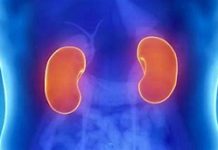Cigarette Smoking – A Silent Killer
You’re ready to kick the habit. That’s great!
If you’re going to quit smoking, you’ll need to deprogram yourself.
As you smoke, not only have you become addicted – in other words, dependent physically, psychologically and in terms of your behaviour – but you’ve also developed thoughts and habits that have strengthened the ties cigarettes have over your life. These ties are so strong that they have been described as a smoker’s reflexes. You can’t change thoughts, habits and reflexes like these simply by swallowing a pill or making a New Year’s resolution. It’s never too late to give up smoking.
Quitting smoking cuts the risk of lung cancer, stroke, heart disease and other respiratory illnesses. Apart from the health aspects discussed above, quitting smoking helps one save money. The smoker now is in control of himself—cigarettes no longer control him.
Self-image and self-confidence of the smoker improves immediately. A non-smoker is a healthier role model for his children and sets a better example for the next generation.
Start your stop smoking plan with START
S = Set a quit date.
Choose a date within the next two weeks, so you have enough time to prepare without losing your motivation to quit. If you mainly smoke at work, quit on the weekend, so you have a few days to adjust to the change.
T = Tell family, friends, and co-workers that you plan to quit.
Let your friends and family in on your plan to quit smoking and tell them you need their support and encouragement to stop. Look for a quit buddy who wants to stop smoking as well. You can help each other get through the rough times.
A = Anticipate and plan for the challenges you’ll face while quitting.
Most people who begin smoking again do so within the first three months. You can help yourself make it through by preparing ahead for common challenges, such as nicotine withdrawal and cigarette cravings.
R = Remove cigarettes and other tobacco products from your home, car, and work.
Throw away all of your cigarettes (no emergency pack!), lighters, ashtrays, and matches. Wash your clothes and freshen up anything that smells like smoke. Shampoo your car, clean your drapes and carpet, and steam your furniture.
T = Talk to your doctor about getting help to quit.
Your doctor can prescribe medication to help with withdrawal and suggest other alternatives. If you can’t see a doctor, you can get many products over the counter at your local pharmacy or grocery store, including the nicotine patch, nicotine lozenges, and nicotine gum.
Quit Smoking
Find Your Reason
To get motivated, you need a powerful, personal reason to quit. It may be to protect your family from secondhand smoke. Or lower your chance of getting lung cancer, heart disease, or other conditions. Or to look and feel younger. Choose a reason that is strong enough to outweigh the urge to light up.
Build a quit plan
Pick a quit date that gives you time to prepare without losing your motivation to quit. Tell friends and family that you are quitting. Remove cigarettes and ashtrays from your home, work, and car. Identify smoking triggers, and decide how you are going to deal with them.
Consider Nicotine-Replacement Therapy
When you stop smoking, nicotine withdrawal may give you headaches, affect your mood, or sap your energy. The craving for “just one drag” is tough. Nicotine-replacement therapy can curb these urges. Studies show that nicotine gum, lozenges, and patches improve your chances of success when you’re also in a quit-smoking
Cold turkey (no outside help). About 90% of people who try to quit smoking do it without outside support — no aids, therapy, or medicine. Although most people try to quit this way, it’s not the most effective and successful method. Only between 4% to 7% are able to quit by going cold turkey alone.
Lean on Your Loved Ones
Tell your friends, family, and other people you’re close to that you’re trying to quit. They can encourage you to keep going, especially when you’re tempted to light up. You can also join a support group or talk to a counselor. “Behavioral therapy” is a type of counseling that helps you identify and stick to quit-smoking strategies. Even a few sessions may help.
Avoid Alcohol and Other Triggers
When you drink, it’s harder to stick to your no-smoking goal. So try to limit alcohol when you first quit. Likewise, if you often smoke when you drink coffee, switch to tea for a few weeks. If you usually smoke after meals, find something else to do instead, like brushing your teeth, taking a walk, texting a friend, or chewing gum.
Get Moving
Being active can curb nicotine cravings and ease some withdrawal symptoms. When you want to reach for a cigarette, put on your inline skates or jogging shoes instead. Even mild exercise helps, such as walking your dog or pulling weeds in the garden. The calories you burn will also ward off weight gain as you quit smoking.
Choose Your Reward
In addition to all the health benefits, one of the perks of giving up cigarettes is all the money you will save. There are online calculators that figure out how much richer you will be. Reward yourself by spending part of it on something fun.
The immediate effects of quitting cigarettes:
Within 20 minutes – blood pressure decreases and pulse returns to normal.
After 8 hours – the level of carbon monoxide in the blood returns to normal the level of oxygen in the blood increases.
After 24 hours – the chance of a heart attack decreases, and the quality of skin and hair starts improving, as overall blood circulation starts improving.
After 48 hours – damaged nerve endings begin to recover; and the sense of taste and smell improves.
After 72 hours – the body is virtually free of nicotine; breathing pattern improves and breath becomes odour-free.
After 2–12 weeks – air holding capacity of lungs and circulation, both improve.
Longer-term effects of quitting include:
After 1 year of ceasing to smoke the risk of coronary heart disease is cut down by half.
After 5 years of stopping to smoke the risk of stroke is as good as that of a non-smoker.
After 10 years of ceasing to smoke the risk of lung cancer is cut down by half and the risk of other cancers decrease significantly.
After 15 years of stopping to smoke the risk of coronary heart disease drops, usually to the level of a non-smoker.
Cigarette Smoking – A Silent Killer










